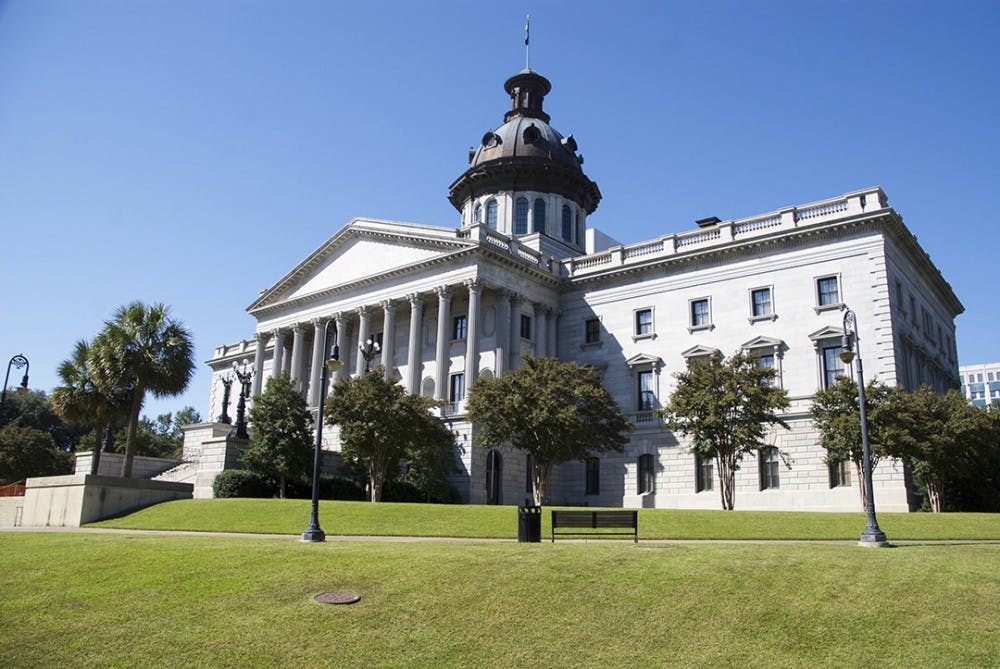As last year’s legislative session came to a close, members of the South Carolina General Assembly pre-filed 556 bills for 2017. With the 122nd South Carolina General Assembly set to convene for the first time Tuesday morning, here are three pre-filed bills to keep an eye on in the coming months:
1. HB 3012 — The “bathroom bill”
Only days after North Carolina’s controversial HB 2 became law last March, Sen. Lee Bright (R-Spartanburg) introduced S 1203 on the floor of the South Carolina State Senate. The bill, which Bright admitted was modeled on HB 2, would have prevented local governments in South Carolina from passing anti-discrimination ordinances regarding the use of public bathrooms by LGBTQ individuals.
S 1203 failed in late April , weeks after Gov. Nikki Haley said the bill was unnecessary given a lack of complaints from around the state regarding transgender individuals using public bathrooms. Bright announced his intent to refile the bill in the 2017 legislative session , but lost his re-election bid in November.
However, a pair of Upstate lawmakers kept Bright’s proposal alive. Sponsored by Rep. Steven Long (R-Boiling Springs) and Rep. Josiah Magnuson (R-Campobello), HB 3012 was referred to the House Committee on Judiciary on Dec. 15. With passage, the bill would prohibit government regulations to “require a place of public accommodation, private club, or other establishment to allow a person to use a multiple occupancy bathroom or changing facility regardless of the person's biological sex.” The bill defines “biological sex” as “the physical condition of being male or female, which is stated on a person's birth certificate.”
Long says his foremost intent in filing the bill is to protect small businesses around the state from government overreach.
Like S 1203, HB 3012 would prevent new non-discrimination ordinances regarding bathroom use so that “[a] local government or municipality or some other entity could not force a business owner to do something different than what they wanted to do,” Long told WLTX last month.
2. HB 3090 — Salary increase for S.C. lawmakers
Filed to House Committee on Judiciary, Rep. John King (D-York) sponsored HB 3090 seeking a significant increase in the salaries of South Carolina state lawmakers.
At present, members of both houses of the South Carolina General Assembly are paid a per diem of $10,400 annually. On top of the per diem, members receive a $12,000 in-district expense account for their time away from Columbia, as well as assorted stipends for hotel accommodations, mileage, and food.
With HB 3090, King requests an increase of the per diem from $10,400 to $42,830. If the bill passes, a referendum will be conducted alongside the 2018 state general election.
King said his greatest concern with the current per diem is that it discourages prospective lawmakers from running for office. The State Assembly meets from January to early June , keeping state senators and representatives out of their home districts for half the year and most, like King, a funeral home director , away from their day jobs.
“This is not about John King,” King told The State last month. “I’m thinking about people who would follow me, who would love to run for office.”
In the text of the bill, King noted that the per diem allowed under the state constitution has stayed dormant since 1990, when it was increased from $10,000 to the current $10,400.
3. S 159 — Waiting period for purchases of firearms
In April 2015, then-20-year-old Dylann Roof attempted to purchase a .45 caliber handgun from a gun shop in West Columbia. With a charge for illegal drug possession impending, Roof should not have been able to purchase the weapon. However, a clerical error prevented the FBI from rendering a decision within the state-mandated waiting period of three days. Roof gained possession of the firearm and, two months later, used it to murder nine people at Emanuel AME Church in Charleston.
When the State Assembly reconvened the following year, Rep. Gerald Malloy (D-Darlington) and Sen. Marlon Kimpson (D-Charleston) pushed to lengthen the mandatory waiting period in hopes of preventing a scenario similar to Roof’s from happening again. Their efforts were futile, and the State Assembly adjourned with the three-day waiting period still in place.
To organize public hearings on gun issues, the S.C. Senate formed a special committee last summer chaired by Malloy consisting of Kimpson, and Sens. Chip Campsen (R-Charleston), Greg Gregory (R-Lancaster) and Greg Hembree (R-Myrtle Beach). In September and October, the committee held a quartet of public hearings around the state to allow citizens a chance to voice their opinions on gun laws to state legislators.
Taking testimony from the hearings into account, Malloy sponsored S 159, which was pre-filed and referred to the Senate Committee on Judiciary on Dec. 13. The bill’s passage would lengthen the mandatory waiting period from three days to 28 days, which Malloy hopes will allow more thorough background checks of prospective gun owners.

